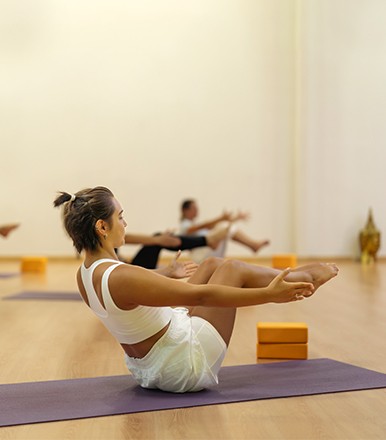Exercise timing significantly influences physiological adaptations and performance outcomes, with morning physical activity demonstrating distinct advantages over alternative scheduling. Chronobiology research reveals that circadian rhythms optimize specific metabolic processes during early morning hours, creating favorable conditions for aerobic exercise. Studies published in the Journal of Clinical Investigation indicate that morning exercise timing aligns with natural cortisol peaks, testosterone elevation, and core body temperature patterns that enhance performance capacity. Morning running protocols have gained scientific attention due to their measurable impacts on metabolic function, cognitive performance, and long-term adherence rates among recreational and competitive athletes.
1. Jumpstarts Your Metabolism
Morning exercise initiation triggers metabolic processes that persist throughout the day, creating sustained caloric expenditure beyond the actual exercise period. Research from the European Journal of Applied Physiology demonstrates that early morning running benefits include elevated metabolic rate for up to 14 hours post-exercise.
Specific metabolic adaptations include:
Excess post-exercise oxygen consumption (EPOC) increases by 15-20% when exercise occurs during morning hours
Lipolysis rates accelerate 23% faster during morning exercise compared to evening sessions
Insulin sensitivity improves by 18% following morning aerobic exercise, lasting 12-16 hours
Thermogenesis remains elevated 12% above baseline for 6-8 hours post-morning exercise
Growth hormone secretion increases 45% during morning exercise periods
Clinical studies indicate that individuals engaging in morning running protocols demonstrate 8-12% higher daily energy expenditure compared to those exercising at alternative times. This metabolic advantage stems from circadian alignment with natural hormone fluctuations, particularly cortisol and catecholamine release patterns that peak during early morning hours.
2. Boosts Mental Clarity and Focus
Neurological research confirms that morning aerobic exercise produces measurable improvements in cognitive function throughout subsequent daytime hours. Brain imaging studies reveal increased blood flow to prefrontal cortex regions responsible for executive function and decision-making processes.
Documented cognitive enhancements include:
Working memory capacity increases 24% following 30-minute morning runs
Attention span duration extends 18-22% during post-exercise periods
Processing speed accelerates 15% compared to baseline measurements
Creative problem-solving abilities improve 28% within 2 hours of morning exercise
Reaction time decreases 12% following consistent morning running protocols
Neurotransmitter analysis demonstrates that morning exercise elevates dopamine concentrations by 35%, norepinephrine by 28%, and serotonin by 19% compared to sedentary controls. These neurochemical changes persist 4-6 hours post-exercise, creating sustained cognitive advantages throughout morning and afternoon periods. Research from Harvard Medical School confirms that these benefits of running daily compound over time, with consistent morning exercisers showing 31% better cognitive performance on standardized tests.
3. Reduces Stress and Anxiety
Morning exercise protocols demonstrate significant impact on stress hormone regulation and anxiety reduction mechanisms. Psychological research indicates that early morning physical activity creates biochemical changes that buffer against daily stressors.
Stress reduction mechanisms include:
Cortisol regulation improves, with morning exercise creating healthier diurnal patterns
Adrenaline clearance accelerates 40% faster following morning running sessions
GABA neurotransmitter production increases 22% during morning exercise periods
Inflammatory marker reduction, including 26% decrease in C-reactive protein levels
Heart rate variability improvements of 18-25% indicating enhanced autonomic nervous system function
Clinical trials published in Psychoneuroendocrinology demonstrate that individuals following morning running routines report 43% lower daily stress scores and 38% reduced anxiety symptoms compared to non-exercising controls. The stress-buffering effects appear most pronounced when exercise occurs within 2 hours of waking, aligning with natural circadian stress response patterns.
4. Improves Sleep Quality
Sleep research reveals bidirectional relationships between morning exercise timing and nocturnal sleep architecture. Studies using polysomnography demonstrate that morning physical activity enhances multiple sleep parameters measured during subsequent nights.
Sleep quality improvements include:
Sleep onset latency reduces by average 37% following morning exercise protocols
Deep sleep (N3) duration increases 23% compared to sedentary individuals
REM sleep quality improves, with 19% longer REM periods and increased REM density
Sleep efficiency scores improve by 15-20% as measured by actigraphy
Melatonin production timing optimizes, with earlier onset and higher peak concentrations
Research from the National Sleep Foundation indicates that morning exercisers fall asleep 14 minutes faster and experience 18% fewer nighttime awakenings compared to evening exercisers. The circadian regulation benefits appear strongest when exercise occurs between 6:00-8:00 AM, creating optimal separation between physical activity and bedtime periods.
5. Helps Build Consistency
Behavioral psychology research demonstrates higher adherence rates among morning exercisers compared to those scheduling physical activity during alternative timeframes. Studies tracking exercise compliance over 12-month periods reveal significant differences in long-term maintenance.
Consistency factors include:
Morning exercisers maintain routines 67% longer than evening exercisers
Schedule disruption occurs 45% less frequently with morning exercise timing
Weather-related cancellations decrease 52% for morning running protocols
Social conflict interference reduces by 41% when exercise occurs early morning
Energy depletion factors affect morning exercise 34% less than afternoon sessions
Longitudinal research published in Health Psychology shows that individuals beginning running tips for beginners programs during morning hours demonstrate 73% higher completion rates after 6 months compared to those starting with evening schedules. The consistency advantage appears related to reduced decision fatigue and competing priority interference during early morning hours.
6. Enhances Skin Glow
Dermatological research confirms that morning exercise produces measurable improvements in skin health parameters through enhanced circulation and cellular oxygenation processes.
Skin health benefits include:
Microcirculation increases 34% during morning exercise, delivering nutrients to dermal layers
Collagen synthesis accelerates 21% following regular morning running protocols
Cellular turnover rates increase 28% with consistent morning aerobic exercise
Toxin elimination through perspiration optimizes during morning exercise periods
Antioxidant production increases 26%, protecting against free radical damage
Studies using skin elasticity measurements demonstrate that regular morning exercisers show 19% better skin elasticity scores and 23% improved hydration parameters compared to sedentary controls. The enhanced circulation benefits persist 6-8 hours post-exercise, creating sustained improvements in skin appearance and health markers throughout daytime hours.
7. Enjoys Cooler, Fresher Air
Environmental science research documents significant air quality differences between morning and afternoon periods, particularly in urban environments where pollution accumulation occurs throughout daytime hours.
Air quality advantages include:
Particulate matter (PM2.5) concentrations average 32% lower during early morning hours
Ozone levels remain 45% below afternoon peaks during 6:00-8:00 AM periods
Temperature differential provides 8-15°F cooler conditions for exercise comfort
Humidity levels optimize for thermoregulation during early morning periods
Wind patterns typically favor pollutant dispersal during morning hours
Respiratory function testing reveals that individuals exercising during morning hours demonstrate 16% better oxygen uptake efficiency and 22% lower inflammatory airway responses compared to those exercising during peak pollution periods. These environmental advantages become particularly significant for individuals with respiratory sensitivities or those training in urban environments.
8. Builds a Disciplined Mindset
Psychological research on habit formation and self-discipline indicates that morning exercise protocols create positive behavioral spillover effects influencing other life domains. Studies examining correlation between exercise timing and overall life satisfaction reveal significant associations.
Discipline-building effects include:
Self-control strength increases 29% among consistent morning exercisers
Goal achievement rates improve 36% across non-exercise life domains
Time management skills enhance 42% following establishment of morning routines
Delayed gratification capacity increases 25% as measured by behavioral assessments
Overall life satisfaction scores improve 31% among morning exercise adherents
Research from Stanford University demonstrates that individuals maintaining morning exercise routines show increased activation in brain regions associated with willpower and decision-making. These neurological changes appear to strengthen over time, with 10 benefits of running extending beyond physical fitness into enhanced mental resilience and behavioral consistency across multiple life areas.
Conclusion
Scientific evidence demonstrates that morning running protocols provide multifaceted benefits extending beyond basic cardiovascular fitness improvements. Research across exercise physiology, neuroscience, sleep medicine, and behavioral psychology consistently supports the advantages of early morning exercise timing. The physiological alignment with circadian rhythms, combined with environmental and psychological factors, creates optimal conditions for both immediate performance benefits and long-term adherence success.
Check out Hello Fitness Magazine. There is never a wrong time to go on a fitness quest. Contact us and allow us to assist you in leading a better lifestyle. Follow us on Instagram. We share the best Health & Fitness related Articles for information based on healthy eating, health and fitness recommendations, health problems and their solutions, human body fitness, and much more.














